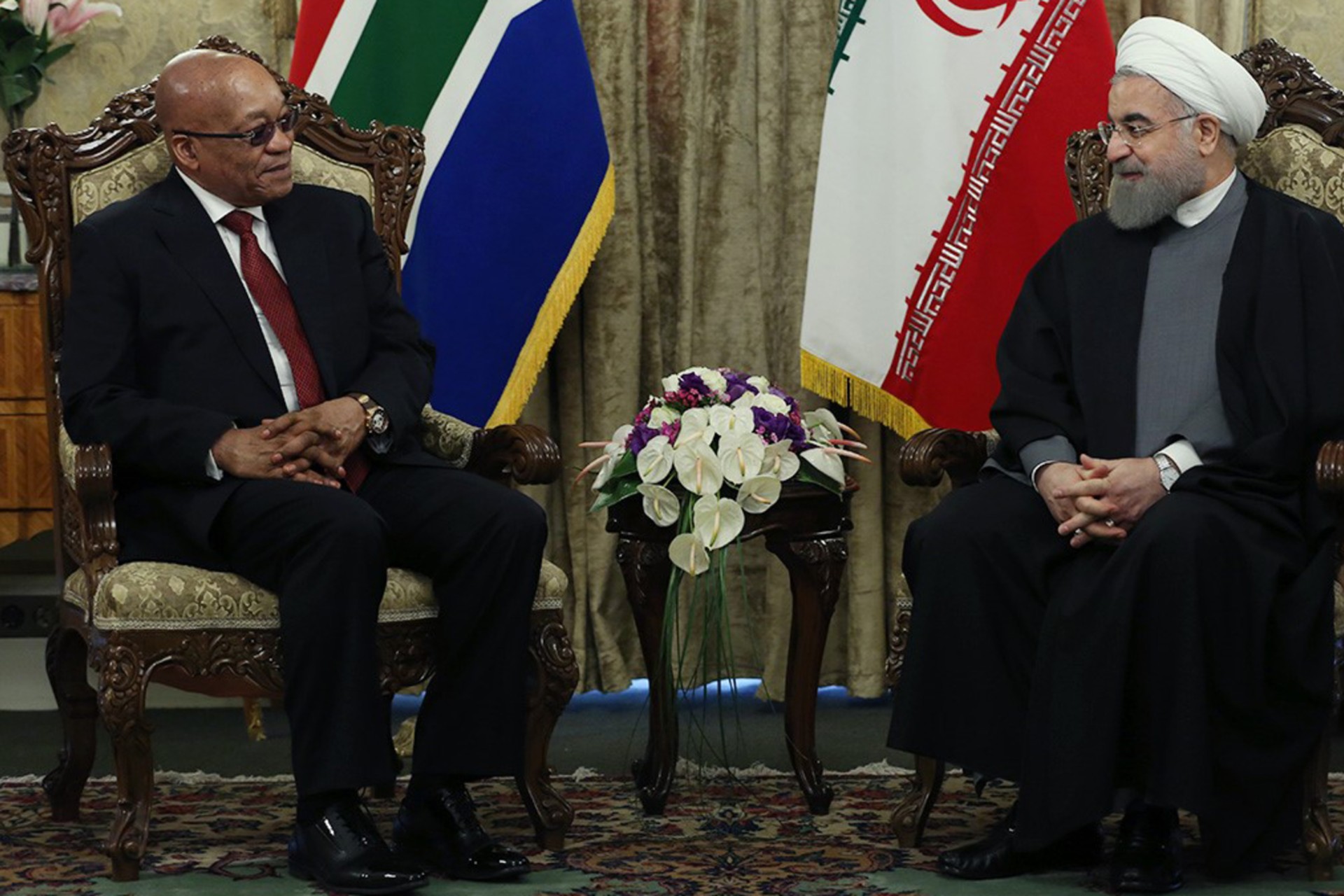Shedding Light on the Iran-South Africa Relationship

By experts and staff
- Published
By
- Guest Blogger for John Campbell
Kitaneh Fitzpatrick is an intern for Middle Eastern history and geopolitics at the Council on Foreign Relations in New York. She is pursuing a master of arts in Near Eastern studies at New York University.
In November 2019, hundreds of Iranian intelligence reports were leaked that shed light on Tehran’s success in bolstering Iranian influence throughout the region. Syria and Iraq featured heavily in the reports and are usually the focus of international attention on Iran’s foreign influence. But the Islamic Republic’s reach extends far beyond the Middle East. Recently, Iran has turned its attention to Africa. Faced with crippling sanctions and diplomatic isolation, Iran has developed a close partnership with South Africa.
South Africa has long been a cornerstone of Iran’s South-South strategy, which aims to strengthen ties with African and South American states. Strongly promoted by President Ahmadinejad, the South-South strategy intends to boost Iranian international credibility and promote trade. The Islamic Republic was one of the first countries to resume trade with South Africa following the end of apartheid, and the two countries have enjoyed strong relations ever since. Trade has been an integral element of this relationship, with Iranian officials estimating the value of Iranian Foreign Direct Investment in South Africa in 2018 at roughly $135 billion.
South Africa has proven to be an unlikely ally, calling the U.S. withdrawal from of the Iran Nuclear deal “regrettable” and publicly reaffirming its commitment to building an Iranian-South African relationship. South Africa has also advocated for Iranian interests at the UN, siding with Iran on critical issues at the UN Security Council and the International Atomic Energy Agency. South Africa’s commitment to maintaining diplomatic ties with Iran in the sanctions era has allowed the two countries to engage in joint business-tech forums, scientific cooperation, and tourism. Operating within the framework of the South Africa-Iran Joint Commission of Cooperation established in 1995, Iranian and South African foreign ministers meet frequently to discuss enhancing cooperation.
South Africa has become an important defense partner. Tehran has sought to leverage its longstanding relationship with South Africa to support Iranian naval expansion outside of the Middle East, and has conducted limited out-of-area naval operations in South Africa, according to a recent U.S. Defense Intelligence Agency report. Iran and South Africa have also signed basic military cooperation agreements, and Iran’s deputy minister of defense met with South Africa’s chief of defense force staff in Tehran this May to discuss “the development of defense cooperation [that would achieve] long term and strategic engagement.” While deepening defense ties with South Africa is important to projecting Iranian military might, Iran’s navy frequently faces maintenance issues and its deployed forces are largely symbolic. However, naval expansion to South Africa is still a powerful demonstration of Iranian political influence in spite of economic hardship and domestic unrest.
South Africa is part of Tehran’s effort to offset the cost of U.S. sanctions and increasing diplomatic isolation from the West. The relationship still has room to grow, but it and others will provide an essential lifeline to Iran and will undermine U.S. pressure.